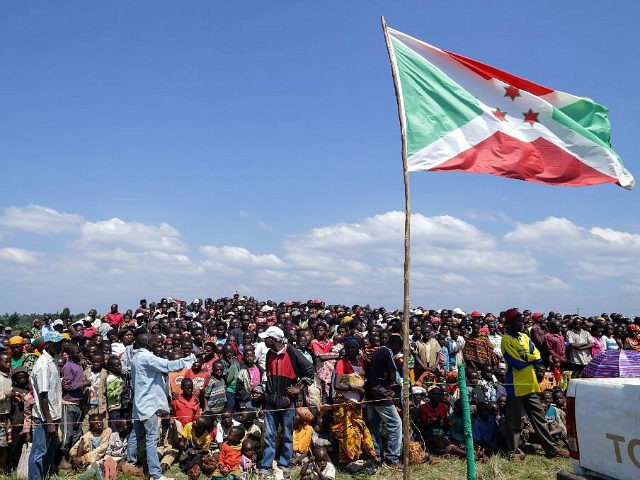Burundi successfully held its first competitive national election since its civil war in 1993 on Wednesday, despite the ongoing coronavirus pandemic, which has hindered elections in other countries, Reuters reported.
Burundi’s last national election in 2015 was the subject of international criticism after current president Pierre Nkurunziza won a controversial third term. Nkurunziza has agreed to step down after this year’s election following 15 years in office. His ruling party, CNDD-FDD, chose a retired general and fellow member, Evariste Ndayishimiye, to run against the opposition party leader Agathon Rwasa and five others this year.
The full results of the election’s outcome are expected by May 27. The winner must secure at least 50 percent of the vote in the first round. Otherwise, a run-off election must be held within the next two weeks, according to the report.
“We call on Burundians to vote in massive numbers and vote peacefully. We need good elections,” Pierre Claver Kazihise, chairman of Burundi’s election commission, said during a state TV broadcast in the lead up to the vote. Wednesday’s election met both criteria, with “long” lines at polling stations where operations ran “smoothly,” according to voters interviewed by Reuters.
“The voting is really taking place smoothly and I voted for change but I am pessimistic about the counting of votes,” said one citizen who asked to be quoted anonymously.
According to some voters, certain social media platforms and messaging apps, such as Twitter and Whatsapp, seemed to have been shut down around the time of the election. Some speculated that the government may have orchestrated the move to prevent the spread of information during the crucial polling period, according to the report.
Burundi’s last national election in 2015, which saw Nkurunziza elected to his third term, was the subject of widespread international criticism. Citizens protested the election results in demonstrations that turned violent. The U.N. criticized Nkurunziza and his ruling party of human rights violations in the aftermath, which the government denied. This eventually led the government to shut down the U.N.’s human rights office in Burundi in 2019.
Last week, the government ousted another U.N. official when it ordered the head of Burundi’s World Health Organization mission, a U.N. health body, to leave the country after the health authority objected to the government holding crowded political rallies in the lead up to Wednesday’s election. The gatherings, attended by thousands of people, were allowed despite the ongoing Chinese coronavirus pandemic.

COMMENTS
Please let us know if you're having issues with commenting.